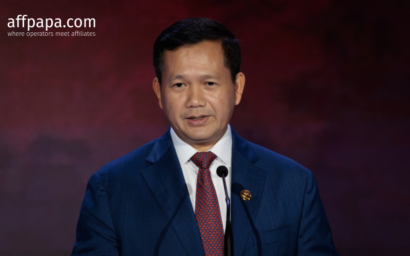Digital yuan highly possible in Macau, say Bernstein analysts

About two months ago, Bloomberg reported that it had insider information declaring that Macau could possibly move away from using the Hong Kong dollar as its base currency sometime in the near future, opting instead to rely on China and introduce the digital yuan currency. This announcement made waves in the gaming scene, with many expressing their concerns over the control China wanted to apply on the city – and the chance of Macau heading in the exact same direction as Hong Kong was quite unsettling.
Despite the fact that Macau’s gambling regulator, the Gaming Inspection and Coordination Bureau (DICJ, in the Portuguese acronym), denied the Bloomberg report, there may have been more to the story than what we see and know so far. Analysts with the Sanford C. Bernstein brokerage have spoken up on this matter and are maintaining that a move to a digital yuan would be favourable for Macau’s casinos in the long run.
The analysts published a research report last Friday, stating that a Chinese digital yuan as the central currency in Macau would aid both the mass and premium-mass segments. The conclusion is partly based on China’s clampdown on cross-border payments and transactions, and the analysts firmly believe that the use of the digital yuan would render those payments much easier and quicker, as well as please Chinese authorities. China has been working harder than ever to repress gambling and illicit payment activity recently, and this will not be stopping anytime in the near future.
Bernstein analysts Vitaly Umansky and Tianjiao Yu stated in the report:
“[A digital yuan] would allow greater [Chinese] government scrutiny and control over money flows [and] it would also allow easier money transfer [and] eliminate the need to use intermediaries (like junkets, underground banks or pawnshops). Mass and premium-mass play could surely benefit due to ease of money flow.”
The fact that analysts are still devoting their precious time and resources to the subject of the use of the digital yuan in Macau points to the fact that the DICJ’s denial of the rumors might actually be untrue or misinformed. There seems to certainly be some truth to the Bloomberg report and it is quite possible, given China’s latest stance on political control, that Macau could be expected to make changes when the time comes to issue new casino concessions next year. Still, as of now, there has not been any solid evidence to support that idea.
What is known, according to the Bernstein analysts, is that digital money is highly likely to come to Macau in one way or another. Umansky and Yu added, “The internationalization [of Chinese currency] could go a long way to increasing the probability” of seeing it become the “standard currency in Macau.” They pointed out that it would be a “long process,” but predict, “Eventually digital transactions will be the norm and cash as we know it will be an historical relic. But this will be an evolutionary development that will likely take many years.”

























